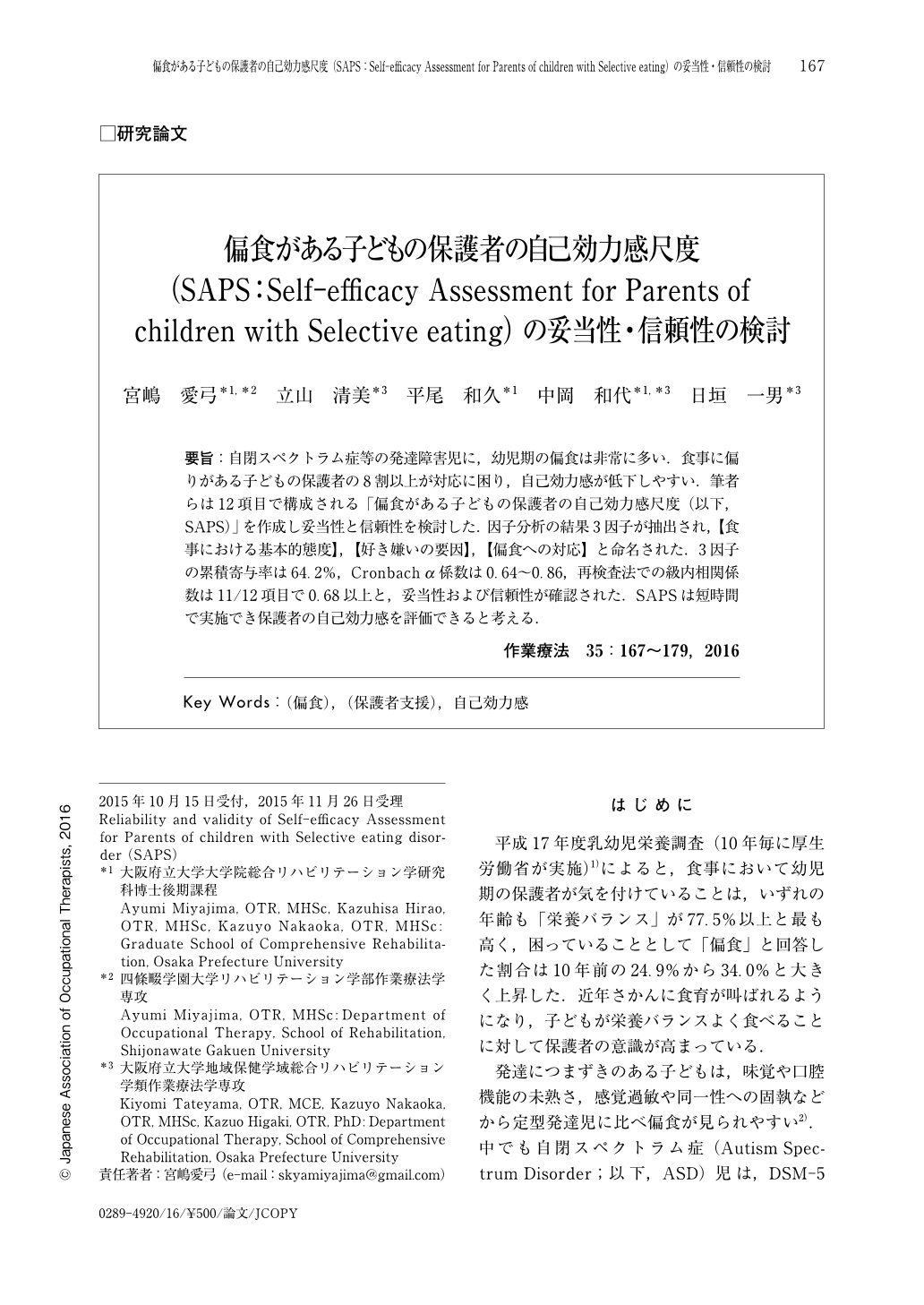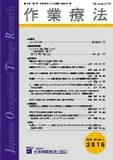Japanese
English
- 販売していません
- Abstract 文献概要
- 1ページ目 Look Inside
- 参考文献 Reference
要旨:自閉スペクトラム症等の発達障害児に,幼児期の偏食は非常に多い.食事に偏りがある子どもの保護者の8割以上が対応に困り,自己効力感が低下しやすい.筆者らは12項目で構成される「偏食がある子どもの保護者の自己効力感尺度(以下,SAPS)」を作成し妥当性と信頼性を検討した.因子分析の結果3因子が抽出され,【食事における基本的態度】,【好き嫌いの要因】,【偏食への対応】と命名された.3因子の累積寄与率は64.2%,Cronbach α係数は0.64〜0.86,再検査法での級内相関係数は11/12項目で0.68以上と,妥当性および信頼性が確認された.SAPSは短時間で実施でき保護者の自己効力感を評価できると考える.
Children with Developmental Disorders, such as Autism Spectrum Disorder, often experience selective eating in early childhood, resulting in difficulties in parenting. Those parents tend to have lower self-efficacy. It is important to understand parents' self-efficacy in order to expand children's repertoire. In this study, we developed a 12-item Self-efficacy Assessment for Parents of children with Selective eating (hereafter SAPS) and investigated its validity and reliability. We used a factor analysis and calculated the cumulative contribution ratio to determine the validity of the SAPS. The factor analysis revealed the following three factors: 1) Basic attitude in eating, 2) Factors of likes and dislikes, and 3) Correspondence to selective-eating. The cumulative contribution ratio of these three factors was 64.2%. Cronbach α's values and the interclass correlation coefficient were analyzed to evaluate the reliability of SAPS. Cronbach α's values were 0.64 to 0.86. The interclass correlation coefficient was more than 0.68 in 11-items upon re-examination. Our results indicate that SAPS has high validity and reliability. This study suggests that SAPS is an easy and quick assessment tool to determine the self-efficacy of parents of children with selective eating.

Copyright © 2016, Japanese Association of Occupational Therapists. All rights reserved.


